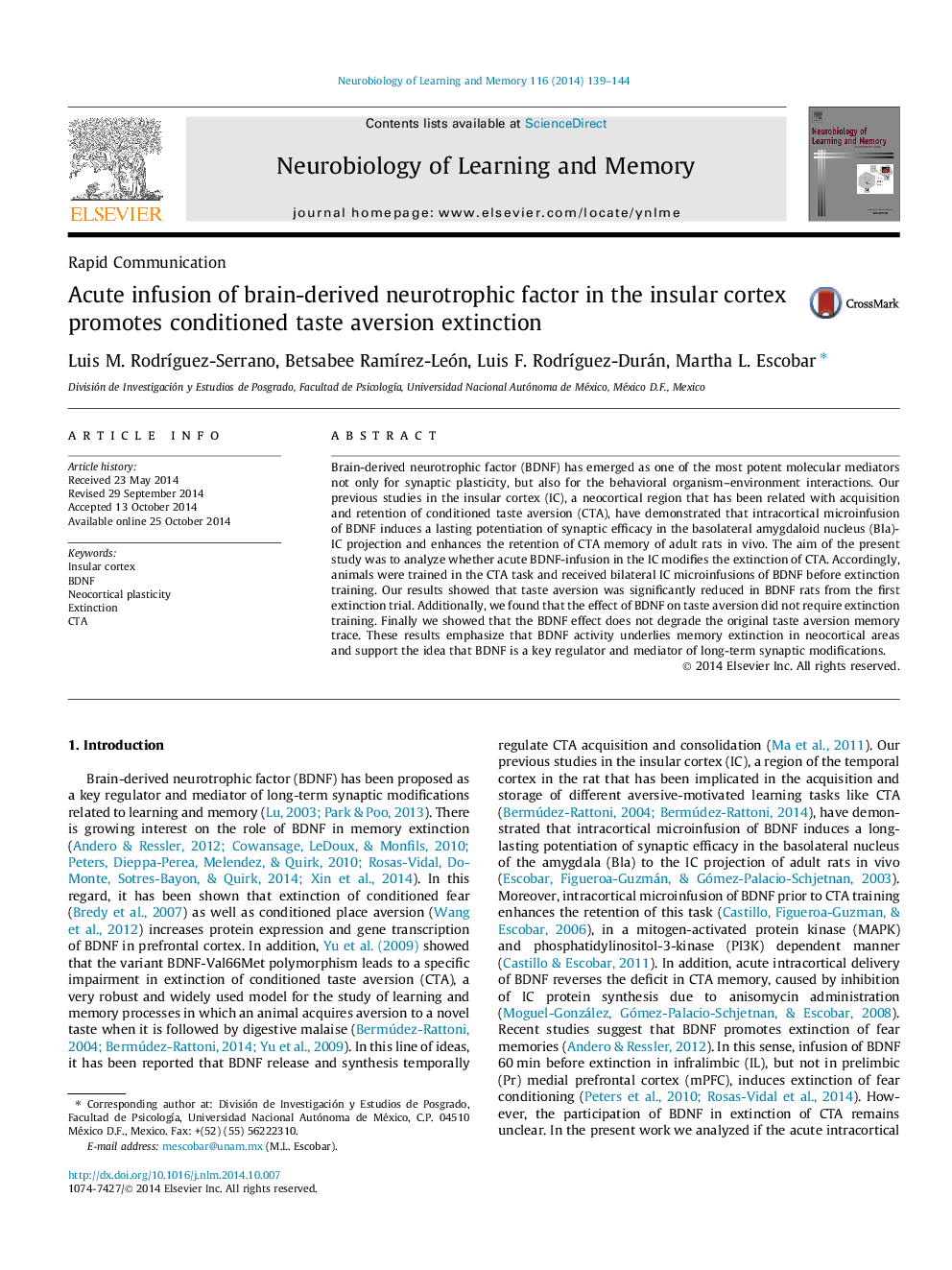| Article ID | Journal | Published Year | Pages | File Type |
|---|---|---|---|---|
| 7299958 | Neurobiology of Learning and Memory | 2014 | 6 Pages |
Abstract
Brain-derived neurotrophic factor (BDNF) has emerged as one of the most potent molecular mediators not only for synaptic plasticity, but also for the behavioral organism-environment interactions. Our previous studies in the insular cortex (IC), a neocortical region that has been related with acquisition and retention of conditioned taste aversion (CTA), have demonstrated that intracortical microinfusion of BDNF induces a lasting potentiation of synaptic efficacy in the basolateral amygdaloid nucleus (Bla)-IC projection and enhances the retention of CTA memory of adult rats in vivo. The aim of the present study was to analyze whether acute BDNF-infusion in the IC modifies the extinction of CTA. Accordingly, animals were trained in the CTA task and received bilateral IC microinfusions of BDNF before extinction training. Our results showed that taste aversion was significantly reduced in BDNF rats from the first extinction trial. Additionally, we found that the effect of BDNF on taste aversion did not require extinction training. Finally we showed that the BDNF effect does not degrade the original taste aversion memory trace. These results emphasize that BDNF activity underlies memory extinction in neocortical areas and support the idea that BDNF is a key regulator and mediator of long-term synaptic modifications.
Keywords
Related Topics
Life Sciences
Neuroscience
Behavioral Neuroscience
Authors
Luis M. RodrÃguez-Serrano, Betsabee RamÃrez-León, Luis F. RodrÃguez-Durán, Martha L. Escobar,
